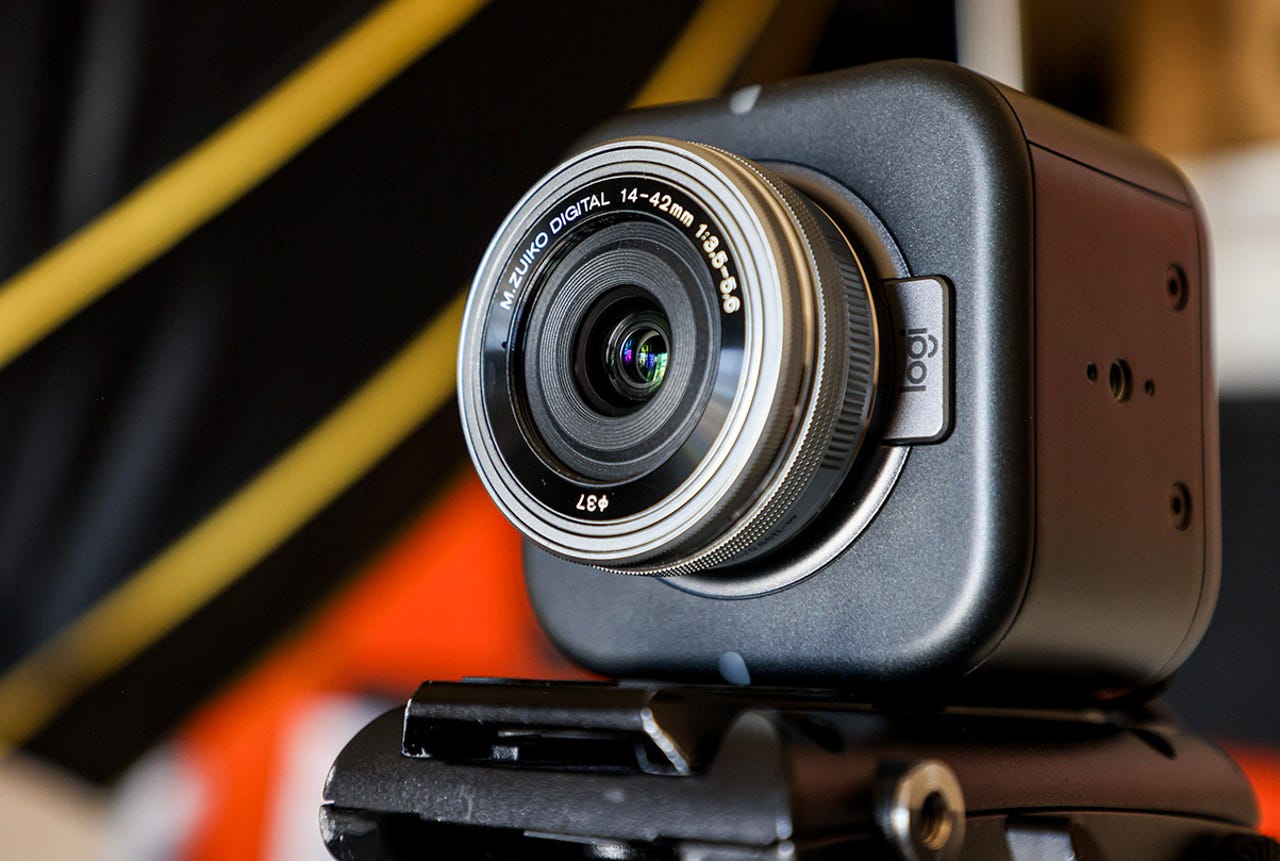
































Logitech has been a premiere leader in the webcam market for years. This is in large part due to how the company continues to strategically redefine what a great webcam should be and how it should present you as the on-camera star.
Also: The best vlogging cameras of 2024
Whether improving image sensor tech and optics or smart acquisitions, the company has made my job reviewing the latest cameras and photo gear a little more exciting than it already is. Case in point: Logitech just launched theMevo Core 4K Wireless streaming camera , and it's one of the most interesting gadgets I've tested in a while.
Getting the tech specs out of the way, there are only a few things that truly matter when it comes to webcams: the image sensor, frame rate, and resolution.
The Mevo Core is capable of 4K resolution for recording video while streaming video tops out at 1080p. Both resolutions offer a frame rate of 30 frames per second (fps), which is pretty standard for capturing or streaming content to platforms like Twitch and YouTube.
Also: ESPN adding local sports to its app and website - is your team there yet?
The kicker regarding this camera is the image sensor. This isn't your tiny smartphone or webcam image sensor. The Mevo Core utilizes a Micro 4/3 image sensor (MFT). This is roughly three times the size of typical webcams and smartphone sensors, leading to better low-light performance.
But, there's more regarding the image sensor and camera. If you have a MFT lens, you can use it with the Mevo Core. Any MFT lens is compatible with the Mevo Core, but Logitech states it has a few "certified" MFT lenses from Panasonic Lumix, Olympus, and Sigma. More on that momentarily.
In a recent Office Hours with my creator community, I showed off the build quality of the Mevo Core. I was pleasantly surprised when I unboxed this camera. The Mevo Core is a solid 1.5lbs (700g) with a 23Wh lithium-ion battery in a boxy form factor of 3.5in x 3.5in x 3.25in (90mm x 90mm x 82.4mm). The material is plastic, but not "cheap." When holding the Mevo Core in your hands, you can really feel the quality of it.
Logitech Mevo Core streaming camera on a tripod mount
The fascinating, boxy build of the Mevo Core is one of the reasons creators will be interested in this camera. Along each side you'll find a ?-20 mount (four total), which is perfect for tripod mounting plates, monitors, external microphones, and any other tools a creator will use to capture video. Yes, the Mevo Core has an internal microphone, but an internal mic on a camera should be your last resort when recording audio.
Also: DJI's latest wireless microphones solve one of my biggest problems with audio recording
The Mevo Core has an HDMI port and two USB-C ports, but it is also Wi-Fi 6E and Bluetooth capable. This capability is handy as it allows you to manage the camera with the Mevo Multicam mobile app on your iOS or Android device. The app makes changing camera zoom, focus, and exposure settings quick and easy. It also touts having an AI Auto-Director to allow streamers and content creators with multiple Mevo Core cameras to switch views and camera angles for more compelling video for their audience.
Regarding the previous mention of MFT lenses to be used with the Mevo Core, here's the list of "certified" MFT lenses as mentioned by Logitech.
Manufacturer | Prime/Zoom |
Olympus 14-42mm EZ | Powered Zoom |
Lumix 14-42mm PZ | Powered Zoom |
Lumix 45-175mm PZ | Powered Zoom |
Sigma 16mm | Prime |
The image quality on the Mevo Core is outstanding. This is not your average webcam. With the Micro 4/3 image sensor, you can expect better performance in low light, but the performance in great (controlled) lighting, such as in my home studio, will really blow you away. In my simple comparison, I was pleasantly surprised by the image quality as I attached the Lumix 45-175mm f/4 zoom lens to the Mevo Core next to myCanon R5 C and its 24-105mm f/4 L lens.
The Mevo Core (left) next to the Canon R5 C (right).
Granted, this test can't be considered "fair," but it's a good way to see how the Micro 4/3 sensor and quality glass (lens) will stack up against a full-frame sensor on a powerhouse of a camera. See for yourself below. The image isn't bad at all. I will note that in my existing lighting, I noticed that at ISO 1600 the Mevo Core image noise was more apparent. The R5 C is set to ISO 1600 with next to no noise. Therefore, I set the Mevo Core to ISO 800 and increased the exposure to better match the exposure brightness of the Canon.
The Logitech Mevo Core is available now for$999, and believe me when I say it brings a heck of a lot of value based on my testing. Who should buy the Mevo Core? The seasoned creator with an established history and workflow should buy this device if they're looking to upgrade their existing set. Due to pricing, it's harder for me to recommend the Mevo Core to newer creators and streamers, especially if you're on a budget.
I'm excited to try the camera out more, but there's one thing I know for sure: creators will not stand for inconveniences or workarounds when it comes to changing cameras in their setup. Let's see if further integration of the Mevo Core into my studio set will be as seamless as I hope.
 Etiquetas calientes:
tecnología
Foto y vídeo
Etiquetas calientes:
tecnología
Foto y vídeo